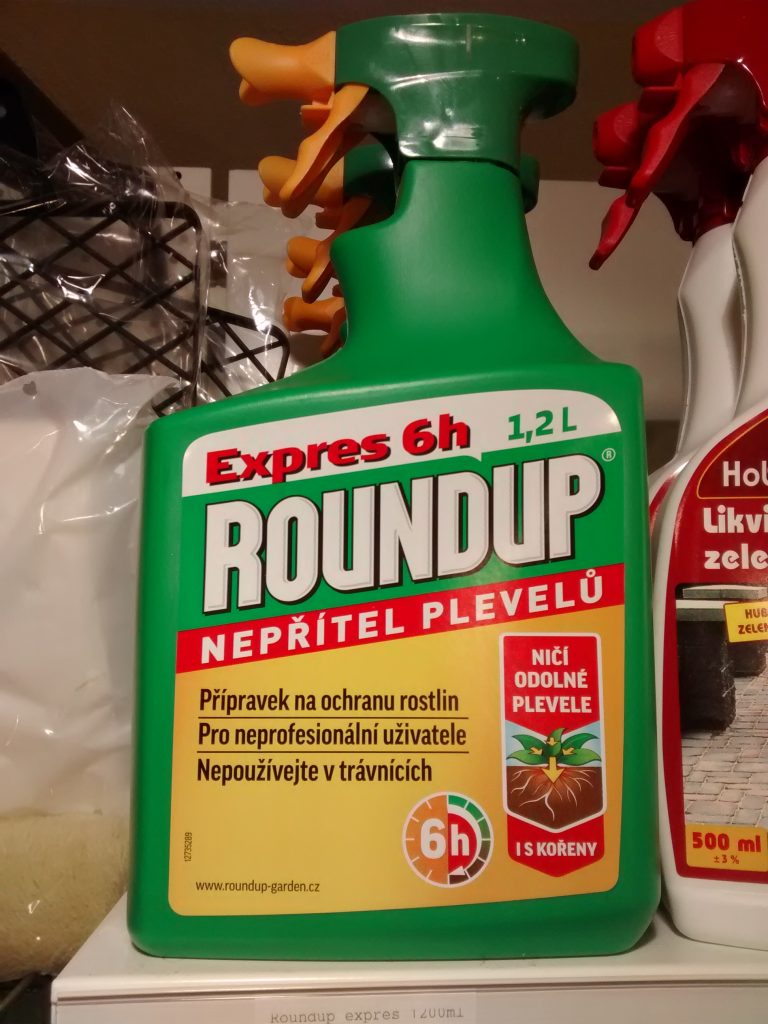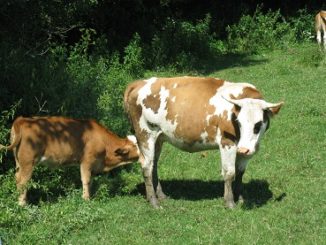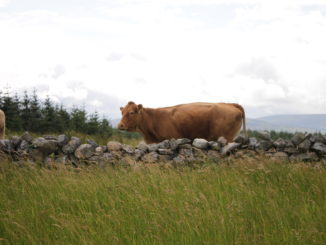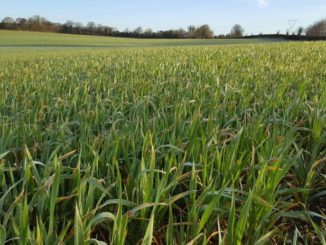
Louise Kelleher in Prague
The use of glyphosate has been curtailed in the Czech Republic with a new ban on desiccating crops for human consumption that came into effect on January 1, 2019. Grains and rapeseed are the main food crops affected by the new regulations. But the Ministry of Agriculture has been accused of making a U-turn on a blanket ban on glyphosate previously announced in September 2018. How far will the Czech Republic go in calling time’s up on Roundup?
New Year’s Day 2019 brought with it a new ban on the pre-harvest use of glyphosate on food crops in the Czech Republic. Glyphosate is the active ingredient in the herbicide Roundup, a weedkiller that is also used in conventional farming for drying down grains to prepare them for harvesting. In very damp conditions this pre-harvest spraying – known as desiccation – is seen as a way to save a crop that may otherwise be lost.
Czech farmers that fail to comply with the new restrictions face losing out on subsidies, while organisations that breach the ban can be fined up to 4 million Czech crowns (€155,176), according to the Czech Ministry of Agriculture.
Backing off a blanket ban
But the partial restrictions are a rowback on an all-out ban on glyphosate proposed by Czech Minister of Agriculture Miroslav Toman only months previously. Announcing the blanket ban in September 2018, Minister Toman described it as “the first of several important steps through which we want to significantly reduce the use of glyphosate” in comments published by news site Deník Referendum.
The proposed blanket ban sparked an outcry from conventional farmers who claimed to have no suitable alternative to glyphosate products. By November, the Ministry had capitulated on the planned restrictions, citing concerns for the competitiveness of Czech agriculture. “We have changed the form of the regulations further to communication with [farming] associations and supervisory bodies,” Vojtěch Bílý, spokesman for the Minister of Agriculture, told Deník Referendum in the wake of the announcement in November that the ban would now apply only to the use of glyphosate as a dessicant on food crops. “The easing of the ban once again shows who has the main influence on our lawmaking. In this case it’s the strong agrobusiness interest groups,” commented Jan Freidinger of Greenpeace. The Ministry of Agriculture denies any pressuring from lobbyists.
Taking cues from the EU
In 2017 the Czech Republic was one of 18 member states to vote to renew the authorisation of glyphosate for agricultural use for the period 2017-2022. The subsequent pushback against the European Commission vote was spearheaded by two Czech MEPs: Kateřina Konečná and Pavel Poc were among the members of the European Parliament Committee on the Environment, Public Health and Food Safety to draft a resolution calling for an all-out ban on glyphosate following the five-year phaseout period.
Sustainable farming advocates from MEPs to grassroots campaigners maintain that instead of seeking alternative herbicides, Czech farmers should be rethinking their methods. But attitudes look slow to change. Glyphosate use remains high compared to neighbouring countries and the substance is making its way via grains and contaminated groundwater into food, drinks and other products. In 2013 a study sponsored by Friends of the Earth found glyphosate was present in the urine samples of 6 out of 10 Czechs, above the EU average of 4 out of 10. The Ministry of Agriculture is quick to cite an overall decrease in glyphosate use since 2013.
Carcinogenic effects are only the tip of the iceberg
The safety of glyphosate divides Czech researchers. Professor Josef Soukup, Head of the Department of Agroecology and Biometeorology at the Czech University of Life Sciences agrees with the newly introduced ban on pre-harvest spraying, but vigorously refutes the risk posed by the substance elsewhere. “Groundless attempts to ban [glyphosate] in Europe would only damage the competitiveness of producers and increase the environmental burden; glyphosate, irrespective of the sensationalist media campaign, is one of the safest plant protection products available to us today,” Professor Josef Soukup told the Echo24 news server.
But a prominent professor of organic chemistry disagrees. Professor Pavel Drašar of the University of Chemistry and Technology in Prague welcomed the (since scrapped) blanket ban proposed in September, warning the daily Lidové Noviny: “Carcinogenic effects are only the tip of the iceberg.” Professor Drašar has previously called for a reframing of the debate. In an interview with online news channel DVTV shortly after the European Food Safety Authority published its position on glyphosate in 2017, he asked “why are we still only discussing carcinogenicity?” Citing glyphosate’s proven harmful effects on the human body, Professor Drašar argued that glyphosate should be taken off the shelves, and “users should be wearing antinuclear suits”. “The dose makes the poison,” he concluded.
We can’t ban glyphosate right now
Now that the partial restrictions have come into force, the prospect of a blanket ban seems even more remote. In a television interview in January, the Minister of Agriculture continued to fudge on the fate of glyphosate. Although he asserted “the Ministry of Agriculture’s interest is to restrict it”, Minister Toman appeared to kick the can down the road: “we can’t blanket ban glyphosate as such right now, we would have to prepare for it.” When subsequently asked to clarify his remarks, he confirmed: “[…] we are not ruling out [a blanket ban] but we simply must find substitutes for this product that aren’t so harmful and won’t disadvantage our farmers and processors against competitors from other countries.”
Meanwhile auditors from the European Commission visited Prague in January to investigate a suspected conflict of interest concerning businesses linked to Minister Toman and his head of government. The auditors are scrutinizing payouts of EU subsidies to Agrofert – a conglomerate linked to Prime Minister Andrej Babiš – and Agrotrade, a company run by the Minister of Agriculture’s father and brother. Agrofert is a distributor of Roundup in the Czech Republic. Minister Toman and Prime Minister Babiš both deny any wrongdoing.
The auditors’ report on the alleged conflict of interest is due to be published in April. Notwithstanding the Ministry of Agriculture seems to have settled on a wait-and-see approach to glyphosate. In his recent television interview Minister Toman gave reason to believe little will change in the Czech Republic until the EU’s five-year authorisation expires: “[…] the use of Roundup and respectively glyphosate was extended to the end of 2022, and really from January 1, 2023, the question is what happens next.” With competitiveness concerns high on the agenda, the Czech Republic will be taking its cue from its neighbours in deciding if and when it’s check mate for Roundup.





